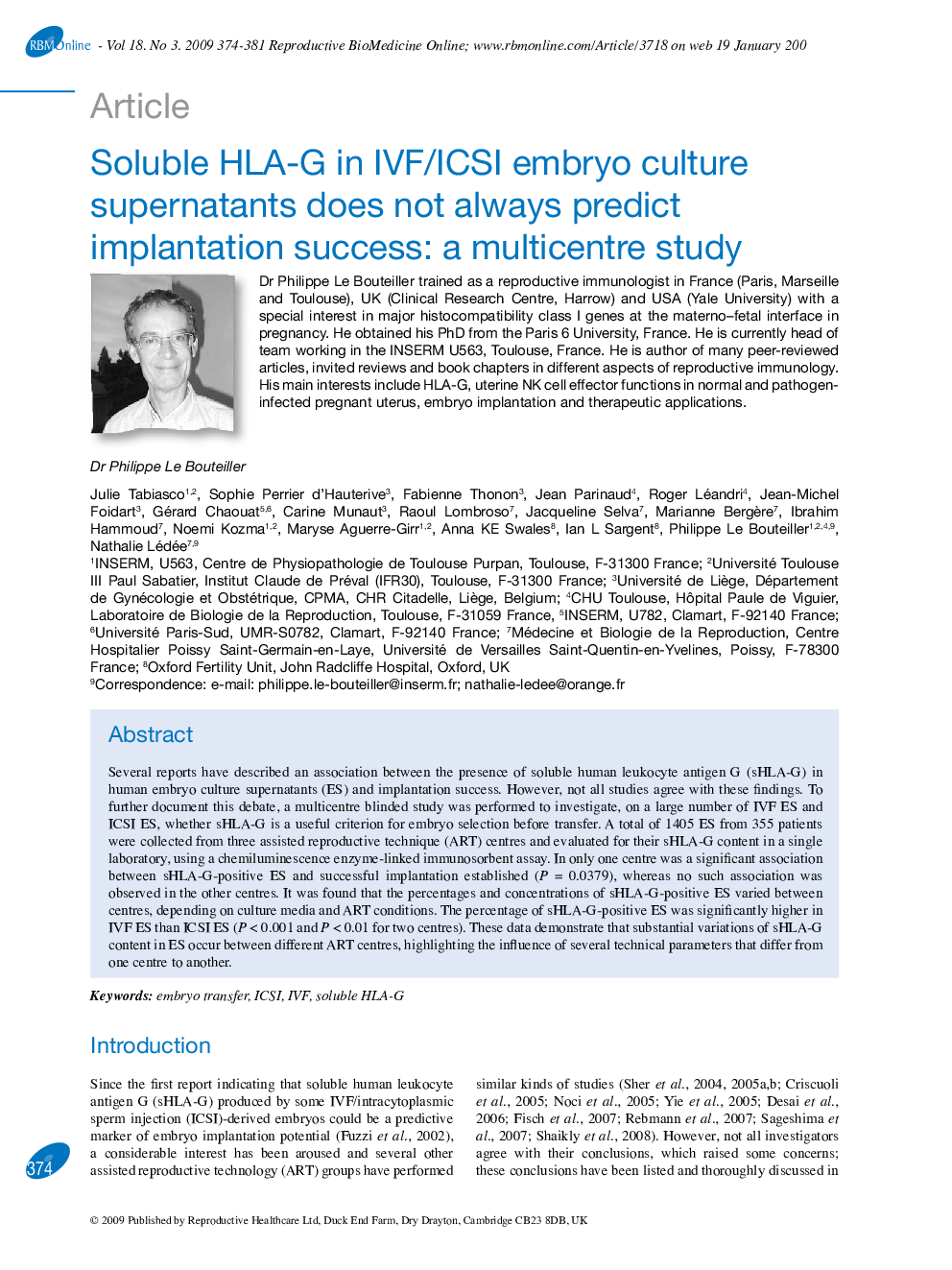| Article ID | Journal | Published Year | Pages | File Type |
|---|---|---|---|---|
| 3972023 | Reproductive BioMedicine Online | 2009 | 8 Pages |
Several reports have described an association between the presence of soluble human leukocyte antigen G (sHLA-G) in human embryo culture supernatants (ES) and implantation success. However, not all studies agree with these findings. To further document this debate, a multicentre blinded study was performed to investigate, on a large number of IVF ES and ICSI ES, whether sHLA-G is a useful criterion for embryo selection before transfer. A total of 1405 ES from 355 patients were collected from three assisted reproductive technique (ART) centres and evaluated for their sHLA-G content in a single laboratory, using a chemiluminescence enzyme-linked immunosorbent assay. In only one centre was a significant association between sHLA-G-positive ES and successful implantation established (P = 0.0379), whereas no such association was observed in the other centres. It was found that the percentages and concentrations of sHLA-G-positive ES varied between centres, depending on culture media and ART conditions. The percentage of sHLA-G-positive ES was significantly higher in IVF ES than ICSI ES (P < 0.001 and P < 0.01 for two centres). These data demonstrate that substantial variations of sHLA-G content in ES occur between different ART centres, highlighting the influence of several technical parameters that differ from one centre to another.
